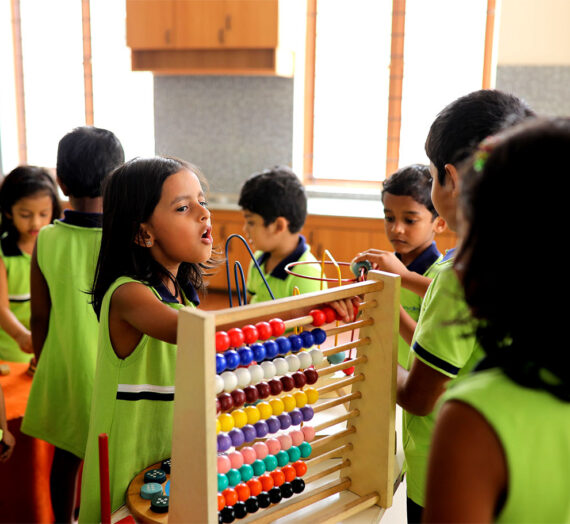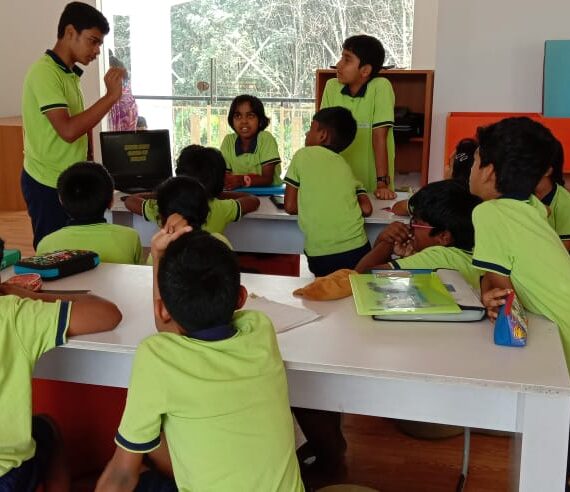Making the Big Board Decision
Now that we have a fair understanding of each of the boards, let us take a moment to compare them over specific dimensions. It is easy to get overwhelmed with the amount of information and opinions out there to make an informed decision. Which is why, we have put together the most important points in a crisp layout for you to quickly understand which of the boards is more aligned with your own expectations, your child’s learning preferences and other factors like rigour, and teaching approaches.
1. Primary Focus
| CBSE | ICSE | IGCSE | IB |
| Focus on Maths and Sciences over other subjects and languages | Equal focus on Math, Sciences, Humanities, Commerce with emphasis on English | Equal focus on Math, Sciences, Humanities, Commerce and English | Equal focus on Math, Sciences, Humanities, Commerce and English |
2. Subjects Offered
| CBSE | ICSE | IGCSE | IB |
| Subjects broadly grouped into three specific, pre-defined streams. | Like CBSE, three streams but more volume in each subject. | No pre-set combinations. Students may choose from 70 different subjects. | Six different subject groups. Students must choose one from each group. |
3. Assessment Criteria
| CBSE | ICSE | IGCSE | IB |
| Assessed based on ability to memorise and recall concepts and facts. | Assessed based on understanding, knowledge, skills, and their application. | Assessed based on understanding, knowledge, skills, and their application. | Assessed based on understanding, knowledge, skills, and their application. |
4. Complexity
| CBSE | ICSE | IGCSE | IB |
| Easy to score, less in-depth concepts, less complex. | Concepts taught in depth, more advanced, harder to score than CBSE. | All year-round assessments, very demanding, variety of criteria. | Various ways of assessments, written exams, difficult curriculum. |
5. International Recognition
| CBSE | ICSE | IGCSE | IB |
| Widely recognised at national level. Lesser recognition at international level. | Recognised widely at national level. More recognised at international level than CBSE. | Very widely recognised at both international and national levels. | Very widely recognised at both international and national levels. |
6. Flexibility
| CBSE | ICSE | IGCSE | IB |
| Difficulty level is pre-defined, and students have no choice in the matter. | Difficulty level is pre-defined and there is little choice for the students to make. | Students may choose the subjects and define their own difficulty levels. Very flexible and student driven. | Difficulty levels are pre-fixed and not entirely student driven although they have some flexibility about choosing subjects. |
These are some of the key factors to be considered while choosing the right board of education for your ward. While there are some more less important criteria, we hope this comparison helps you in deciding the right school for your child.
Please read part-1 here




